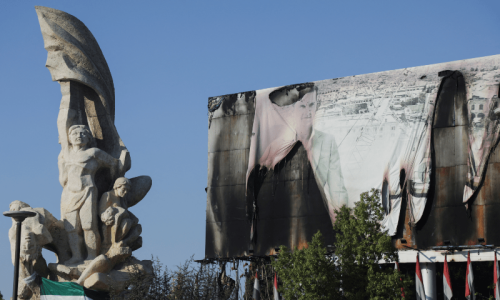ISLAMABAD, June 30: By warning Pakistan about a whole range of consequences, the United States has succeeded in convincing the military leadership to reconsider its decision of drastically reducing American intelligence and military footprint in the country.
In an indication of lessening tensions, diplomatic sources say, the two countries are set to resume their discussions on counter-terrorism cooperation under the rubric of Strategic Dialogue this week. The meeting will be held in Islamabad.Visas for close to 70 CIA operatives have already been issued, while several other cases are in the pipeline. Besides, the military command is seriously reconsidering its decision of sending back military trainers in reaction to the May 2 US raid on Abbottabad that killed Osama bin Laden.
Besides, some steps are also being taken to tamp down rhetoric. If something else doesn't go wrong in coming days, official statements from Islamabad, Rawalpindi and Washington would not be having the same bite that had become their hallmark over the past several weeks.
“We have instituted a new system by streamlining the procedures for grant of visas for CIA and US military personnel, which places a lot of emphasis on documentation and disclosure of exact nature of activities,” a senior government official told Dawn on Thursday about the resumption of the process of issuing visas for the American spy agency.
The change of heart in Islamabad comes after the US had completed withdrawal of intelligence and military personnel on Pakistan military command's request.
The official said: “We could not have afforded a complete breakdown in ties.”
The disclosure about a rethink coincided with the announcement of the Obama administration's new counter-terrorism strategy that underscores the need for remaining engaged with Pakistan terming its cooperation as 'essential' in continued counter-terrorism operations.
The relations that had been deteriorating since the start of the year because of the CIA operative Raymond Davis episode worsened with subsequent drone attacks and touched the lowest ebb with the Abbottabad raid. But reduction in the numbers of military and intelligence personnel turned the troubled relationship toxic.
The Pakistani authorities had withheld 'no-objection certification' for 229 US visa requests at the peak of the crisis in ties, documents seen by Dawn show. These included visa extension cases, visas for incoming replacements and short-term assignments and one exit visa.
Publicly there was a flurry of visits by senior US functionaries from Secretary of State Hillary Clinton, Chairman US Joint Chiefs of Staff Admiral Michael Mullen, CIA Chief Leon Panetta, Chairman Senate Foreign Relations Committee John Kerry to Deputy Secretary of State for Management and Resources Thomas Nides and Deputy Special AfPak Envoy Frank Ruggiero for defusing the tension.
But, significantly and something that isn't public yet, these visits were followed by Washington's behind-the-scenes strong-arm tactics.
Excerpts of one such letter from the US Office of Defence Representative in Pakistan (ODRP), which represents the Pentagon in the country, shared with Dawn detail the steps the Pentagon could take if the decision of cutting the footprint was not reversed.
The letter gave a precise timeline for various consequences Pakistan could face, including stopping the overhauling of MI-17 helicopter fleet, halting of supply of equipment like night-vision goggles and spares for Cobra helicopters, substantial delays in disbursements of Coalition Support Fund and ceasing sharing of intelligence information – just to name a few.
The position taken by the ODRP was that the unavailability of human resources would prevent continuation of all the programmes supporting Pakistan military.
A Pakistani officer, commenting on the letter, admitted that the US used pressure tactics to get its men back in Pakistan, but at the same time said the other option was that of being deprived of equipment and benefits.
“We need their technical support for which we depend on their expertise,” he added.













































Dear visitor, the comments section is undergoing an overhaul and will return soon.